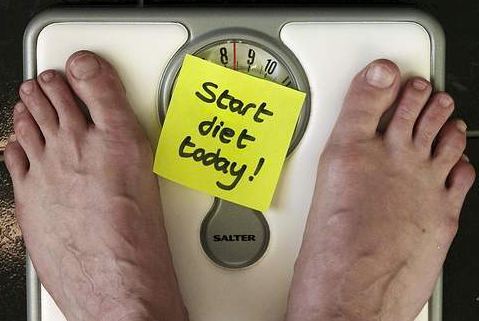Weight loss and eating healthy are both fraught topics with legions of conflicting information on the Internet. So if you’re trying to lose weight or eat healthier, where do you start?
“North Americans spend millions on weight loss industry. The available information is often conflicting and insufficient to identify one popular diet as superior to the others,” said Brooke Bulloch, a registered dietitian with Food to Fit in Saskatoon. “What we’ve seen in some of the reviews of randomized controlled trials is that weight loss among these people is so minimal that one is not better than the other.”
Right now, there’s a lot of talk about low-carb and gluten-free diets. Low-carb diets are shown to be helpful to lose weight quickly, but a lot of that is water weight.
“There are all kinds of diet claiming all kinds of good things … and yes, low-carb diets tend to show a quicker weight loss, but over the course of six months it’s no more successful than any other diet,” Bulloch said.
The gluten-free diet has also taken on some prominence in recent years, though Bulloch says there is no benefit to going gluten-free. People on the diet cut out muffins, burgers, doughnuts, pasta, and replace them with meat and vegetables. Since they cut gluten products and don’t replace them with gluten-free products, they accidentally go on a low-carb diet without realizing it.
“Physiologically and anatomically, there’s no reason why anyone would lose weight on just a gluten-free diet,” Bulloch said.
The bottom line on fad diets is that different things work for different people.
“What people don’t understand about weight is that if you cut calories and exercise more, you’ll lose weight. It doesn’t matter how you go about it,” she said.
She added that the important thing is choosing a diet that isn’t too restrictive and that is easy to stick to.
It’s important to note that weight loss is a lifestyle change, not just a short-term thing. If a person changes their eating habits until they reach a weight goal and then regresses, the weight is going to come back. The diet has to be sustainable for the rest of that person’s life.
Another thing that people looking to lose weight don’t really think about is that it’s more of a lifestyle overhaul than just focusing on what you eat.
“Anybody can lose weight, but if you’re not going to address all aspects of weight – which is not just eating, but also exercise, lifestyle habits (like sleep and stress) and your relationship with food, if you don’t address all of those things and your triggers … then you’re not going to be successful,” she said. “You really have to look at every aspect that could be potentially causing you to gain unwanted weight.”
If the diet is too restrictive, it makes it difficult to keep up the motivation to continue. If the person falls off the wagon, it could lead to binge eating and cravings.
“When you’re feeling too restricted, you can cerate some unhealthy emotional behaviours,” Bulloch said.
Falling off the wagon also leads to guilt, which makes maintaining a lifestyle that much more difficult.
“When people can’t follow restrictive diets, there’s a lot of guilt associated with that and that perpetuates everything – the need to lose weight, the need to go back on a diet,” she said. “Diets focus on failure. They want you to fail so that you’ll start again. They feed off of failure.”
Bulloch said that anyone looking to lose weight should figure out what causes the weight gain in the first place and that there’s an emotional component to weight loss.
“The biggest thing is if we’re not addressing the reasons why we gain weight in the first place … you’re not going to be successful,” she said. “Because you’re still wanting a bit of a magic pill or to lose the weight without looking deep inside with what’s going on emotionally.”
A lifestyle change is not easy. Bulloch said that others can help you, but ultimately, “motivation has to come from within.”
“You have to be motivated because you’re the one who has to put in the work. They’re not going to do the work for you,” she said.
Some tips to stay motivated are:
1) Make realistic goals. If someone looking to lose weight has lofty goals, it leads to guilt and frustration when they don’t meet them. Bulloch recommends using baby steps: set a goal for 10 pounds, achieve it, and then set another goal for five pounds.
2) Have motivations other than weight loss. Weight loss is a good goal, but once you achieve it, there’s no motivation to maintain it. Instead, Bulloch said that it’s better to have goals like staying healthy for grandkids, aging well, or saving money on health.
To start small with losing weight, Bulloch recommends not drinking calories (this means cutting out lattes, alcohol, or juices), avoiding starchy vegetables, cutting carbs by reducing added sugars or refined grains (like white bread or white rice), and including a source of protein into your diet like milk or meat.
The most important thing to Bulloch is that any dieter is remaining healthy as well as losing weight.
“I guess my thing is that any diet that I wish to follow – whether it’s paleo, vegetarian, vegan – I do think that any diet can be a very healthful diet if it’s well-planned,” she said. “My bottom line is to ensure that people are meeting their nutrient needs as well as their goals.”




